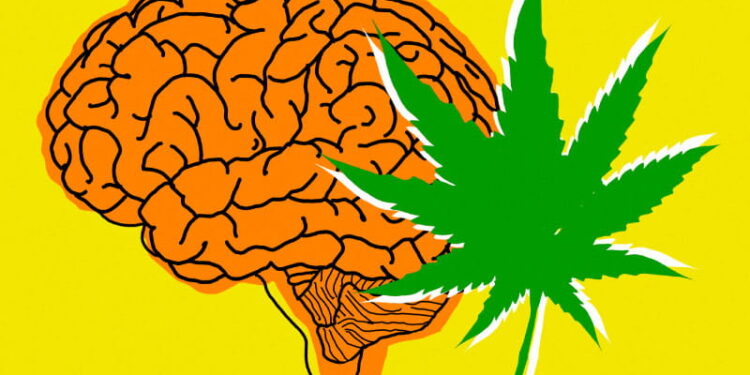A new study has found that adults who consumed medical cannabis for a year did not exhibit any significant reduction in brain function related to working memory, reward processing, or inhibitory control. The federally funded research, published by the American Medical Association in *JAMA Network Open*, examined the brain activity of 57 patients newly prescribed medical cannabis over a 12-month period. The findings challenge previous assumptions about cannabis’ long-term effects on cognitive function.
The study used functional magnetic resonance imaging (fMRI) to observe participants’ brain activity at the start of their cannabis use and again after one year. A control group of non-cannabis users was also included for comparison. The research was conducted from July 2017 to July 2020 and involved patients from the greater Boston area, most of whom were seeking medical cannabis cards for conditions like anxiety, depression, pain, or insomnia.
Researchers reported, “After year-long cannabis use for medical symptoms in adults, we did not observe functional differences between baseline and brain activation at 1 year during working memory, reward processing, or inhibitory control tasks.” They also noted that there was no significant association between the frequency of cannabis use and changes in brain function over the year.
The study primarily involved older, White, female, and generally well-educated participants. Despite these demographic limitations, the researchers concluded that cannabis use for medical purposes did not significantly affect the cognitive areas measured in their study. “This suggests that cannabis use for medical purposes…did not have a significant association with brain activation or cognitive performance,” the report stated.
The research team, affiliated with Harvard Medical School and the McGovern Institute for Brain Research at MIT, emphasized that previous studies linking cannabis with cognitive decline were often based on comparisons between cannabis users and non-users, rather than tracking individual changes over time. Their findings suggest that moderate cannabis use for medical conditions may have minimal impact on long-term brain function. The study was funded by the National Institute on Drug Abuse (NIDA).
Read the whole article from Leafie here.













